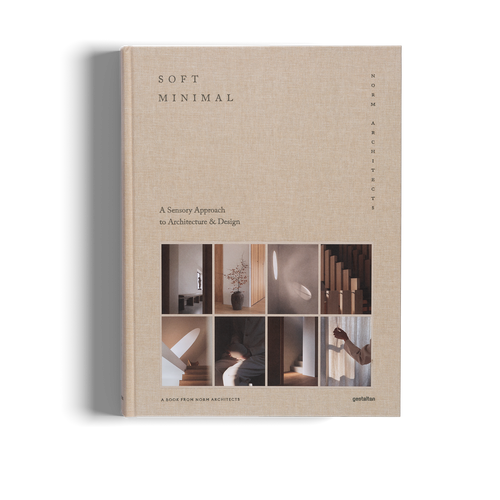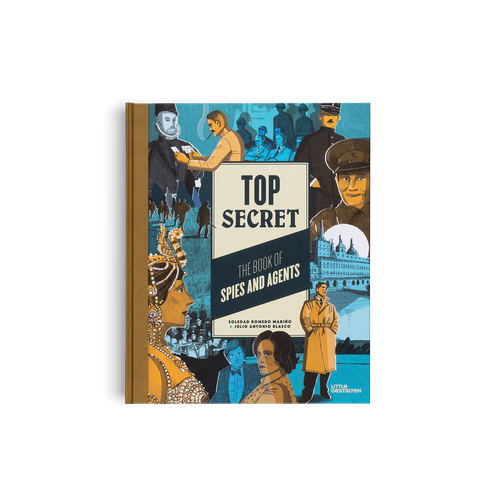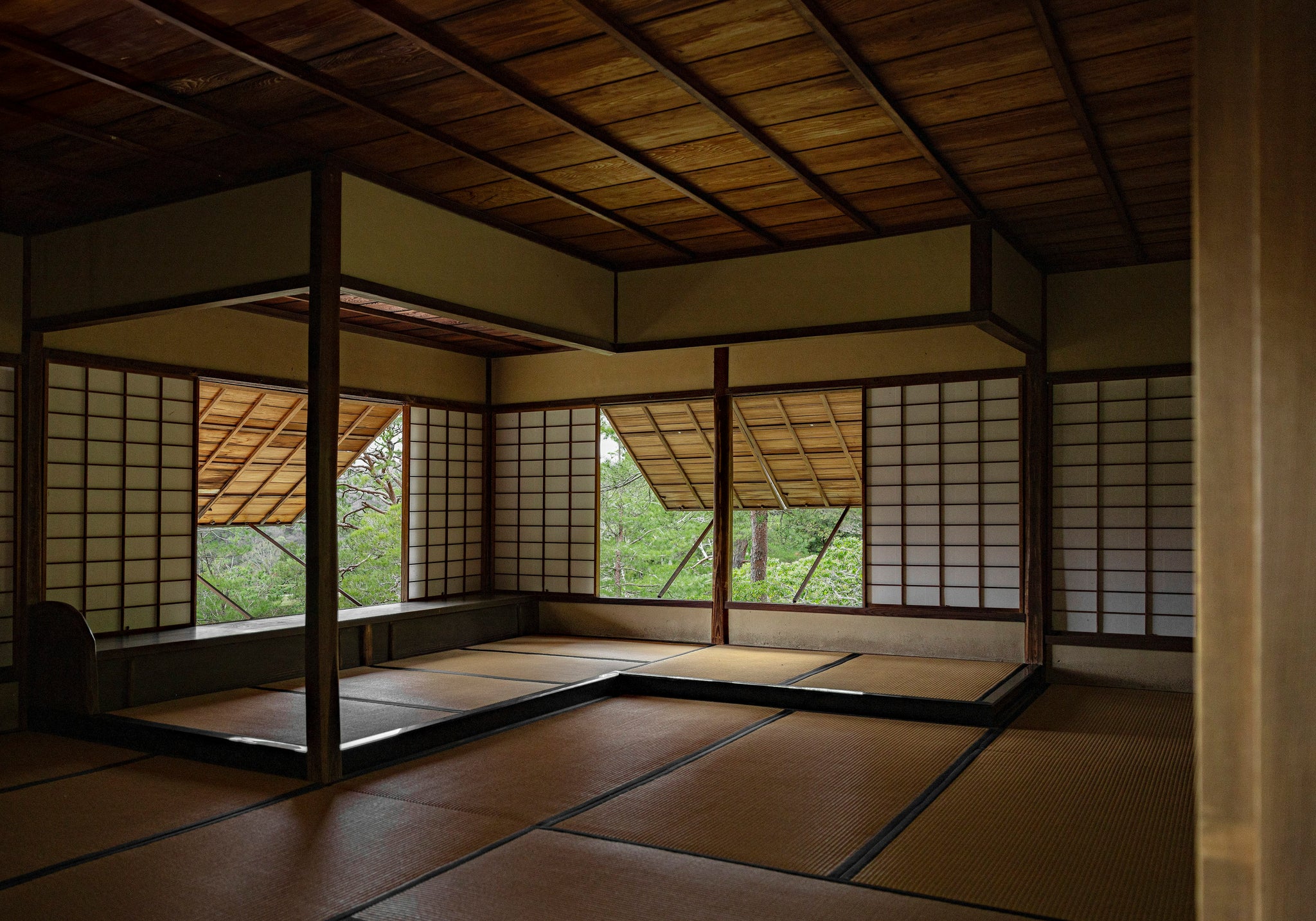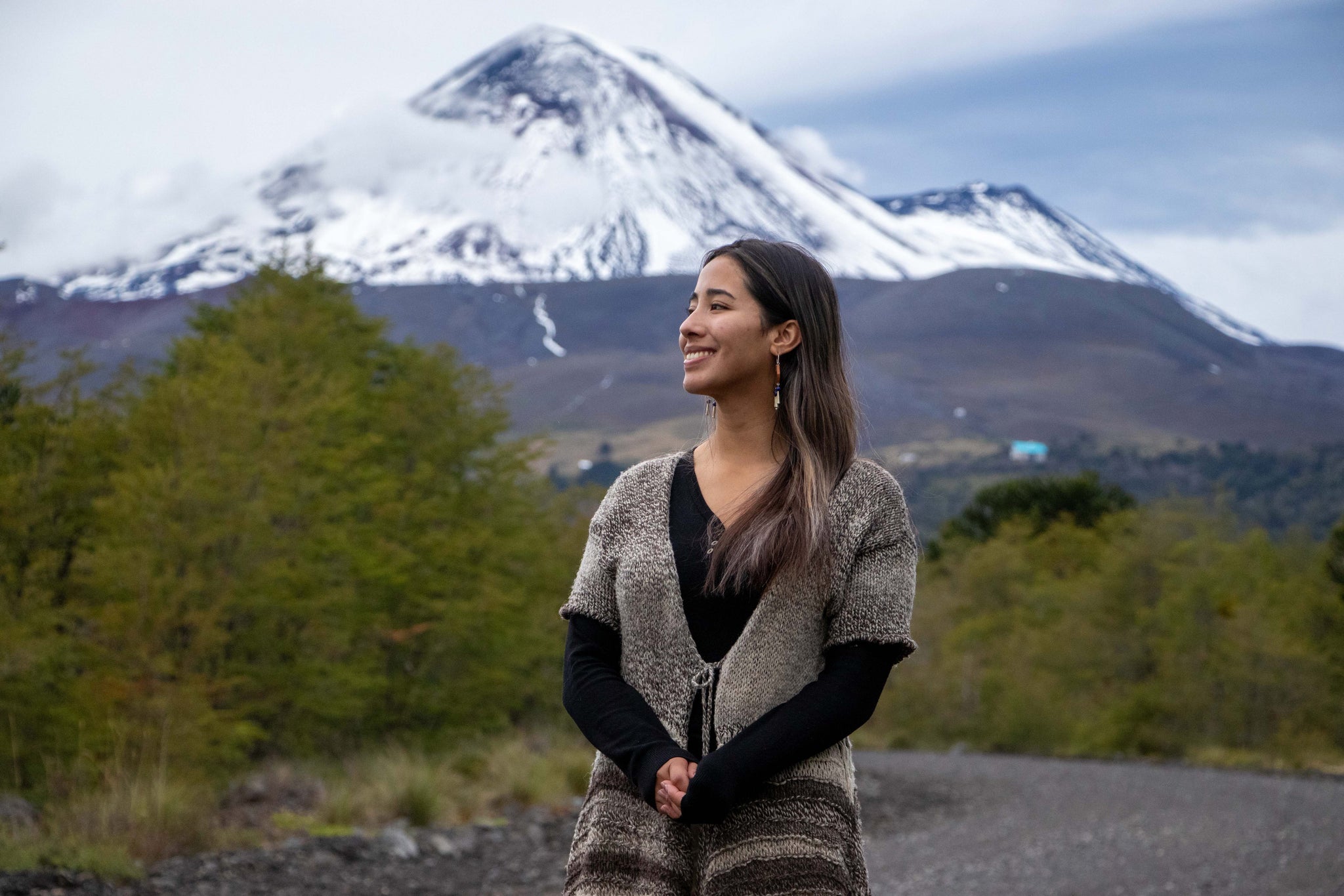
07/2020 design & fashion
What we smell is tied to our memories, our nostalgia, and the warmth of our past. Lavender soap on your piano teacher’s hands. A dusty carpet and mothballs in your grandparents’ house. The savory smell of difficult to pronounce dishes, lingering in the hallway of your first apartment. Perfume dabbed gingerly on the neck and wrists of your prom date. Scent has always been the key that unlocks doors—out of our five senses, it is the one most directly tied to memory; it hovers in our mind like a pleasant surprise, a door to the past waiting to be reopened.
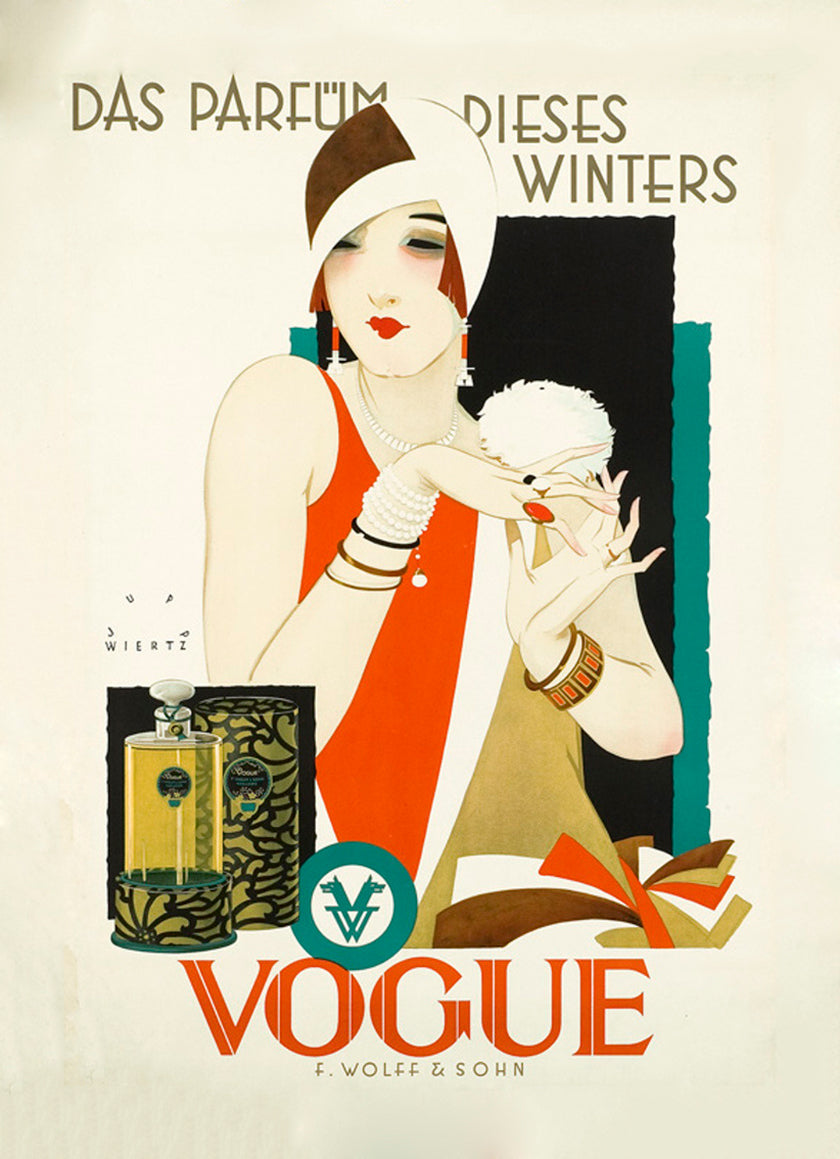
A 1920s art deco advertisement for the fragrance Vogue, illustrated by Jupp Wiertz. (Photo: Das Parfüm dieses Winters, Vogue, circa 1926, The Essence)
Scent and touch are the only two senses that cannot be conveyed over time and space; unable to be transmitted in full, there is no equivalent to a photograph or an MP3 file. They defy digitalization, they cannot cross international boundaries, you must be present to receive it. And yet, the sting of a paper cut, the smoothness of a freshly waxed car, the goosebumps across the arch of a lover’s back—they are numerous and ephemeral, they are disposable experiences.
Scents, however, is the key to unlocking what defines us. The Essence contains meticulously researched profiles of those pushing the envelope of science and fantasy, and the history of a royal pursuit—scent as the second skin of kings and queens and nobility. The nose’s olfactory bulb sits on the base of the brain—yes, even closer than the eyes, whose intake must be post-processed within retinal cones—that they are directly tied to the amygdala and hippocampus, that memory creator that unlocks the doors of emotions and memories. Stumble across a familiar scent and it is an immediate flashback, direct access to time and place. Out in the world, you stop in your tracks. A scene begins to play out, trepidatiously at first, like a stuttering film projector. Whether you continue to watch this, the nostalgia of an unexamined memory is your choice and yours alone.
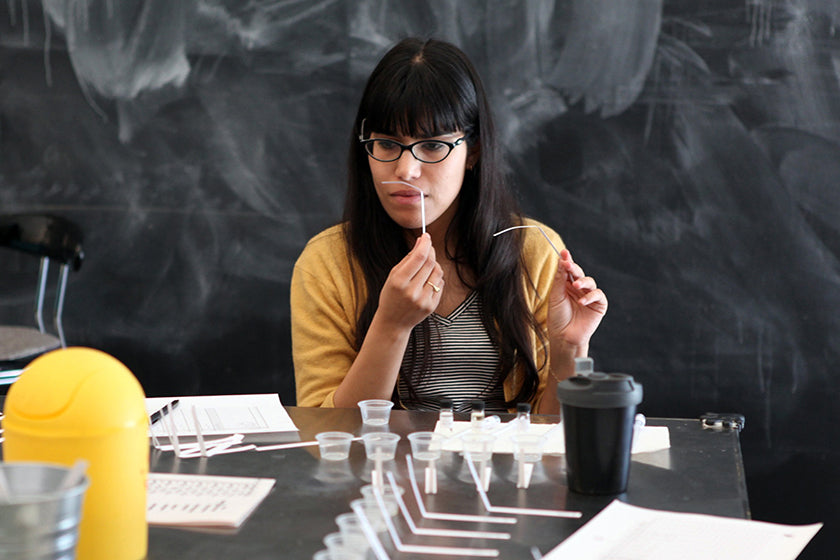
A class on the scent at a non-profit organization, the Institute for Art and Olfaction in L.A. (Photo: The Institute for Art and Olfaction, The Essence)
How much can we smell? Scientists have been studying the senses since the Age of Enlightenment, but it wasn’t until 2014 that they found that we can detect the difference between 1.7 trillion molecules. The odor is a mystery as deep as the oceans. Its relationship to memory is both tangible and inexplicable at once. If these are as unique as our individual, constantly-recorded memories, then from the nose an entire world emerges. It is the loved ones in our lives who impart their scents upon the world—nestled into the sleeves of their clothes, on the things that they touch the most, in the contact they give us when nobody is looking. Here is the nape of a neck, here is a specific dish made just for us, here is the scent of rain on concrete while holding our mother’s hand. Scent unlocks a door that flies open and then slams shut.
A signature scent can be as integral to a person as their eye color or height, evoking nostalgia and setting a template for discovery. The great perfumeries of the world have capitalized on this. In their marketing materials, they stress individuality; they aim to become your trademark scent, your signifier as closely aligned with you as your eye color. It is pure chemistry, inhabiting a centuries-old tradition: there are infinite possibilities and combinations of oils to extract, distill, and combine into iconic creations.
No matter how many millions of gallons of Chanel No. 5 are produced every year, it will remain perennial, aspirational like any luxury good. Sandalwood and bergamot, myrrh and bitter orange, rose petals and patchouli offer up not just pleasant scents, but also something familiar. The advent of laboratory synthesis offers even greater possibilities. Want to smell like a celebrity? How about a scent that evokes a Brazilian jungle, a Pacific Northwest campfire, or a Ford Mustang? Generating scents, as the pioneers within these pages have learned, is a field where the possibilities are truly endless. This makes the industry a paradise for experimentation, appealing to start-ups, bespoke craftsmen, independent perfumers, and global conglomerates alike. Funny, then, that in the $48 billion (€43 billion) global perfume market, there is still room for experimentation.
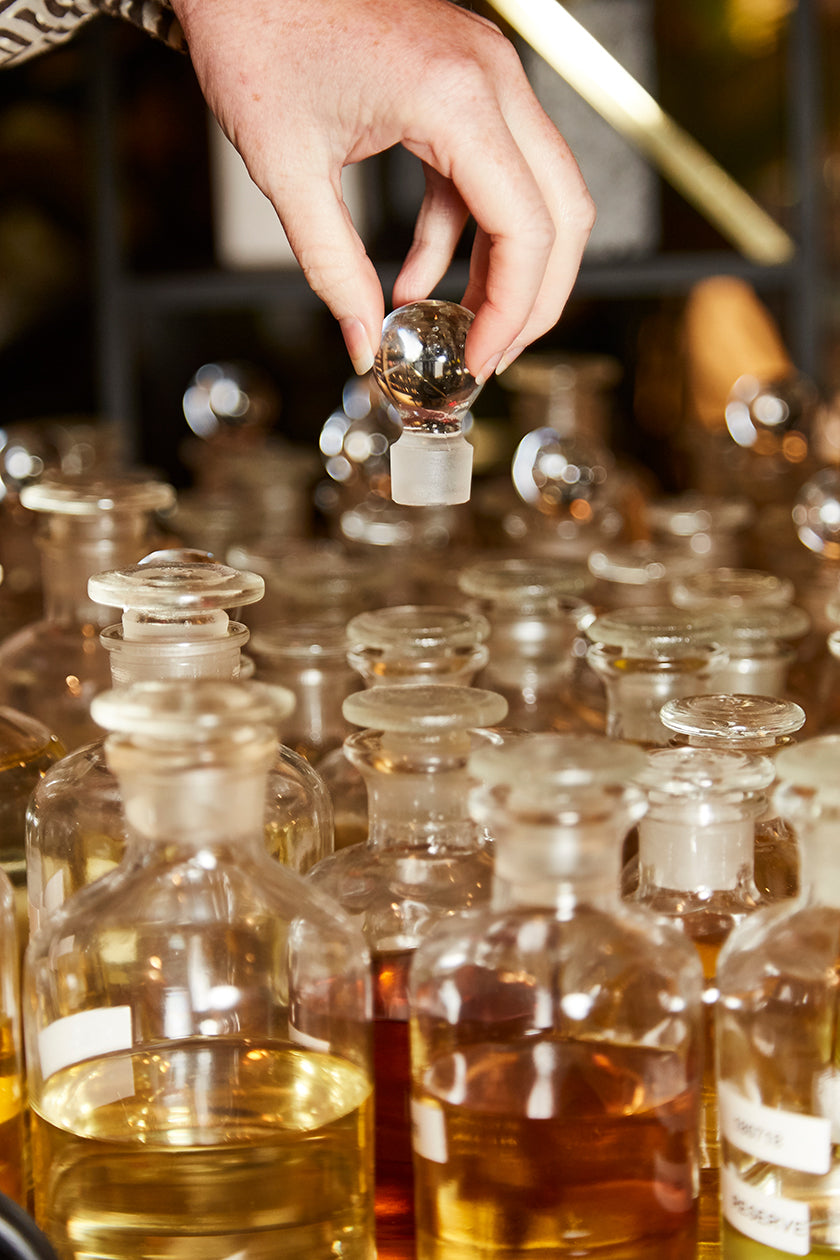
A display of various fragrances from scent boutique Perfumarie in NYC. (Photo: Perfumarie, The Essence)
Perfumers have the chance to embrace the weird stuff: durian, the most-banned fruit in Asia because of its rotting smell. The oil harvested from the anal glands of the civet into something pleasant. Stumbling across ambergris on a rocky Scottish beach is like discovering gold. A mushroom called, aptly, the stinkhorn. The man who discovered plutonium in 1940 gave it the symbol PU, for reasons he was able to observe first-hand. The world’s largest flower, native to Sumatra, which blossoms only once every 10 years, presenting curious onlookers and botanists with the chance to catch a whiff of expired fish, mold, sweat, and blue cheese—all of our nauseating horrors. Does it go into perfume? Except for highly radioactive plutonium-239, enterprising perfumers will never stop experimenting with their heart’s content.
Why are some scents malodorous yet others make us want to get down with each other? It could be an evolutionary warning to stay away from feces, bacteria, tainted water, and rotting flesh: don’t drink the water, don’t eat the meat. Scents can repel or attract, pushing and pulling, toying with desires and contact. Animals exude pheromones to attract mates in the heat; they rub themselves against each other, objects, patches of greenery to mark their territories, to ward off rivals in love. Our love potions do not come from a bottle but from microbes, metabolism, sweat, and testosterone, manifesting in the ghost of a lover gone by the morning. What smells that conjures! How its faint memory of perfumes and bodily sweat can bring a certain joy, tainted by longing.
Breathe in. Breathe deep. Seek the fresh air whenever you can, inhale, and create the memories that bring both wistfulness and unadulterated nostalgia because what we smell is directly tied to our humanity.
This story was originally published in The Essence. Delve into the history of scents and how they evolved into today's billion-dollar industry.

